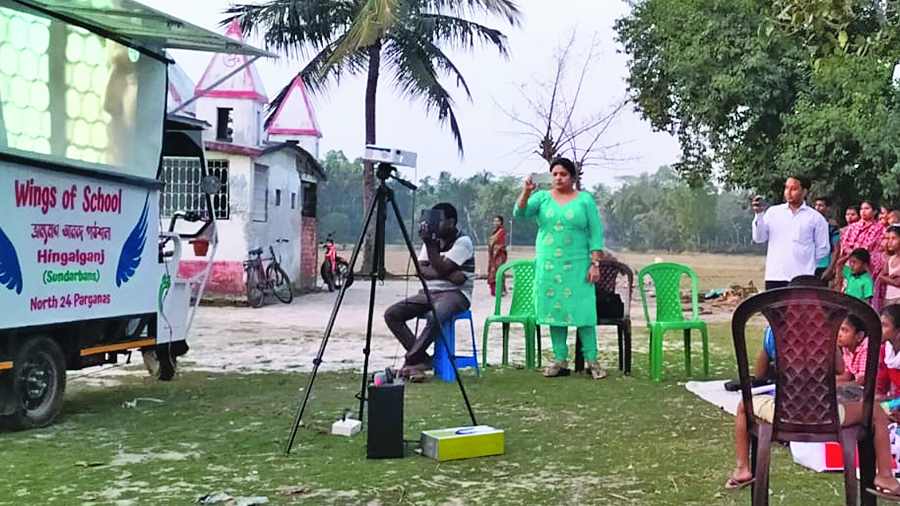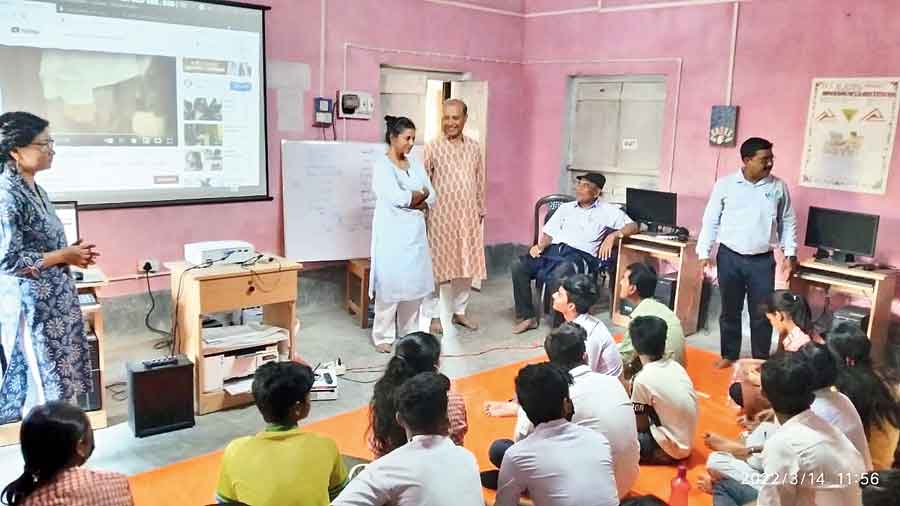A government school in the Sunderbans is reaching out to students, a large number of whom are still not going to school regularly and need help to catch up with lessons, said the head of the institution.
There is a clear division in the classroom between students who are able to follow the lesson and those who have fallen behind during the pandemic, he said.
Kanaknagar SD Institution, Hingalganj, has started a project supported by college teachers in India and abroad to help the students who are lagging behind. As part of the project a vehicle — named Wings of School — travels to two villages with a teacher, who takes classes in the open.
The open-air classes, by the river, are currently held for students of classes V and VI after school hours.
“A section of students has fallen behind. Even when they are present in the classroom, they are unable to follow what is being taught, while their friends can. This is making them more reserved, disinterested and reluctant to attend classes,” said Pulak Roychowdhury, headmaster of the school.
“These students are mostly those who could not attend online classes in the last two years,” he said.
Around 30-40 students in classes V and VI are lagging behind and need to be pushed and encouraged to reach the level of the class they are in.
There are 75 students in Class V and 162 in Class VI.
Roychowdhury has identified two teachers and arranged for remuneration for them to give them an impetus to teach. The vehicle has a projector and a screen to get the children interested to help them learn better.
The focus of the classes is on language and numerical skills.
“Students in Class V now had last come to school when they were in Class III. They have no concept of quantity. Many of them are unable to distinguish between capital and small letters,” said a teacher who has been taking the after-school classes.
The Wings of School van is not a substitute for school but is meant to address problems that have been aggravated by the pandemic, said a professor of economics associated with the project.
“Students who are first generation learners and do not have enough academic support at home are disengaged in the classroom. The project is to augment that learning. It’s not that the problem was not there before the pandemic,” said Arpita Chatterjee, associate professor of economics at an institute in Bangalore.
“Most of these students had no access to online classes. But the disengagement was there even for the students who had access to online learning,” she said.
Those who have started the project will not restrict it to one school but open it for students of other government institutions who are facing “a gradual withdrawal if not directly dropping out”.

